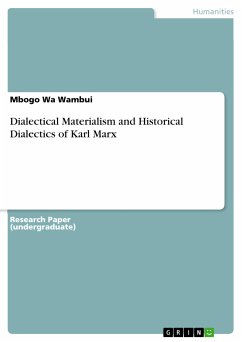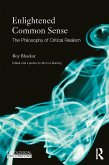Research Paper (undergraduate) from the year 2011 in the subject Philosophy - Philosophy of the 19th Century, grade: A, University of Nairobi, language: English, abstract: This paper seeks to explain Karl Marx's dialectical materialism and historical dialectics. The stimulus of the work of Marx was the hope of a social revolution in his lifetime or in the future. Unlike British classical economics who aimed at the welfare of the capitalists, Marx worked to represent the interest of the wage earner. This is best represented in the "Communist Manifesto" of 1848. Marx called himself a materialist, though under Hegelian influence. In 1843, he went to France to study socialism. There, he met Engels, the manager of a factory in Manchester. From him, he came to know of English labour conditions and English economics. After taking part in the French and German revolutions of 1848, he sought refuge in England in 1849 from where he wrote and amassed knowledge.
Dieser Download kann aus rechtlichen Gründen nur mit Rechnungsadresse in A, B, BG, CY, CZ, D, DK, EW, E, FIN, F, GR, HR, H, IRL, I, LT, L, LR, M, NL, PL, P, R, S, SLO, SK ausgeliefert werden.









